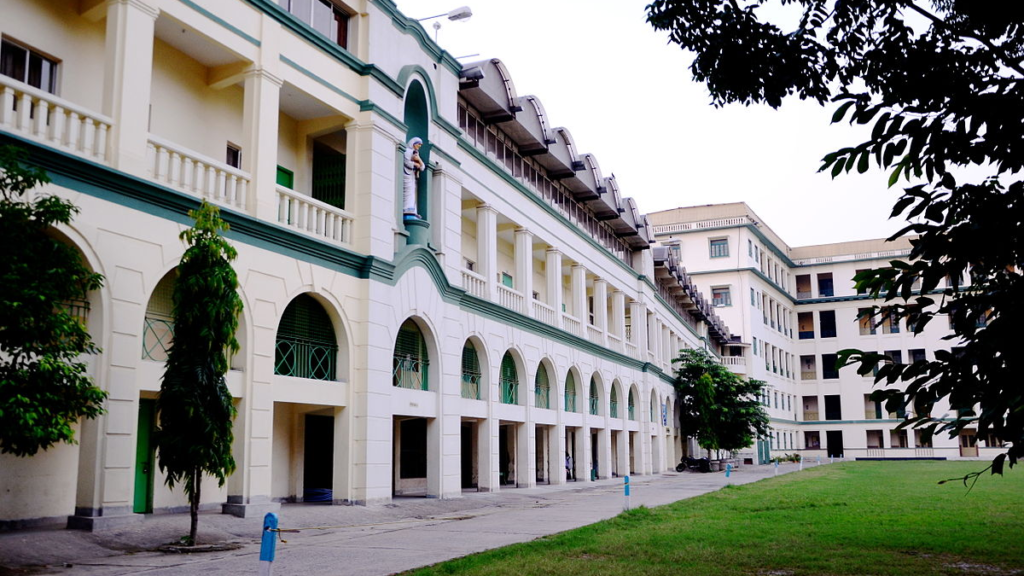Shashi Tharoor Former Union Minister of State for Human Resource Development and Congress MP expressed grave worries about the deterioration of higher education in India during a thought-provoking session held at St. Xavier’s College in Ahmedabad. Tharoor identified a broad list of problems that plague Indian colleges today, ranging from the startling erosion of academic independence to bureaucratic meddling and ongoing underfunding, all in reference to the theme “The Idea of a University.”
Over-Regulation and Bureaucratic Constraints
Shashi Tharoor severely criticized what he called the “over-bureaucratization” of Indian academia. He observed that higher education institutions are over-regulated with too many controls that tend to stifle their autonomy and creativity. “We are by and large over-regulated and under-resourced,” he stated, emphasizing how a stiff bureaucratic system is strangulating creativity and responsiveness in universities.
Tharoor noted that these regulatory systems tend to be handled by people who have no or minimal experience in academia, and thus the regulations end up suffocating free thinking and experimentation. In his view, universities need to be accorded more academic and administrative freedom to set curricula, modes of examination, and areas of research that best suit their specific contexts and student populations.
Underfunding and Shrinking State Support
Another key issue that Shashi raised was the shrinking state funding for universities. He mentioned that education budget cuts, particularly in research and innovation, have had a deep impact on the quality and number of academic output. “There has been a slashing of state support for universities and a very substantial reduction in the allocation for research,” he said.
This insufficient investment in tertiary education, he maintained, breeds a vicious cycle — low funding produces substandard infrastructure, which translates to substandard training and restricted research opportunities, further decreasing the overall quality of education. He called on policymakers to see education not as an expense but as an investment in the future of the nation.

The Erosion of Academic Freedom
Maybe the most urgent issue expressed by Tharoor was the growing danger to academic freedom in India. He cautioned that the room for criticism and dissent — the very bedrock of any healthy academic atmosphere — is dwindling. “There are emerging threats to the freedom of academic expression,” he warned.
Tharoor emphasized that colleges should be institutions where students and professors are able to hold free and fearless exchanges of views. “India cannot afford to churn out graduates with closed minds who brand others as anti-nationals for having a different perspective,” he said. He instead encouraged an academic environment that fosters open discussions, tolerance, and critical thinking.
The Importance of Diversity and Dissent
Building on the theme of diversity, Tharoor insisted that multiple viewpoints are an asset, rather than a menace. He suggested that several of those who wield power look upon ideological or cultural diversity as being inimical. In a pluralistic polity like India, universities cannot but function as custodians of intellectual and cultural pluralism.
“A university has to guard the concept of diversity. It should embrace dissent and diversity of opinion,” he said. Shashi Tharoor went on to state that promoting diversity of ideas, backgrounds, and experiences is central to creating well-rounded individuals with the ability for empathetic and rational thinking. “Students should be instructed peaceful coexistence,” he stated, going on to say that civil disagreement and debate are vital aspects of a democratic education system.
Shashi’s views on Peaceful Protests and Student Voices
Shashi Tharoor also expressed in support of non-violent student activism, opining that institutions of higher learning should never deny peaceful protest on campus. According to him, stifling students’ voices belittles them and undermines their capacity to mature into socially responsible citizens. “Peaceful protest is part of student growth. It teaches them to stand up for what they believe in,” he elaborated.
He remembers that most of India’s most effective social and political movements have originated from student activism. Therefore, instead of being considered subversive, student involvement should be considered an indication of a sound academic climate.
Missing Pillars: Employability and Excellence
While acknowledging that India has made strides in equity and access to education, Tharoor noted that the twin goals of employability and excellence have been neglected. “We have focused on expansion, ensuring more people get access to education, but we’ve failed to focus on whether that education is excellent, and whether it leads to meaningful employment,” he said.
He cautioned that if India begins to produce graduates with appropriate skills, the increasing number of degree holders will not move over to a productive workforce. There must be a focus again on quality education, output of research, soft skills, and solving problems in real life.
A Call for Urgent Reforms
Wrapping up his speech, Tharoor demanded immediate and sweeping changes in India’s higher education system. He emphasized the requirement of a balanced strategy that appreciates tradition as well as innovation, and respects academic freedom and institutional autonomy as non-negotiable.
He called on the government, academia, and civil society to join hands to protect the essential values of Indian universities. “We need to ensure that our institutions of higher learning remain spaces for intellectual freedom, social mobility, and national progress,” he stated.
In effect, Tharoor’s speech was both a warning and a wake-up call. Unless India confronts these deep-seated issues — from over-regulation and underfunding to stifling academic freedom — the very concept of a university, as a refuge of knowledge, critical thinking, and democratic values, may be at risk.
Also Read :https://en.wikipedia.org/wiki/Shashi_Tharoor
Also Read :https://thenewstudent.com/trump-administration-bold-move/
Also Read :https://thenewstudent.com/vineet-joshi-as-new-ugc-chairman/
Pingback: Meet the Girls Who Brought Home 4 Medals from Big Math Contest -